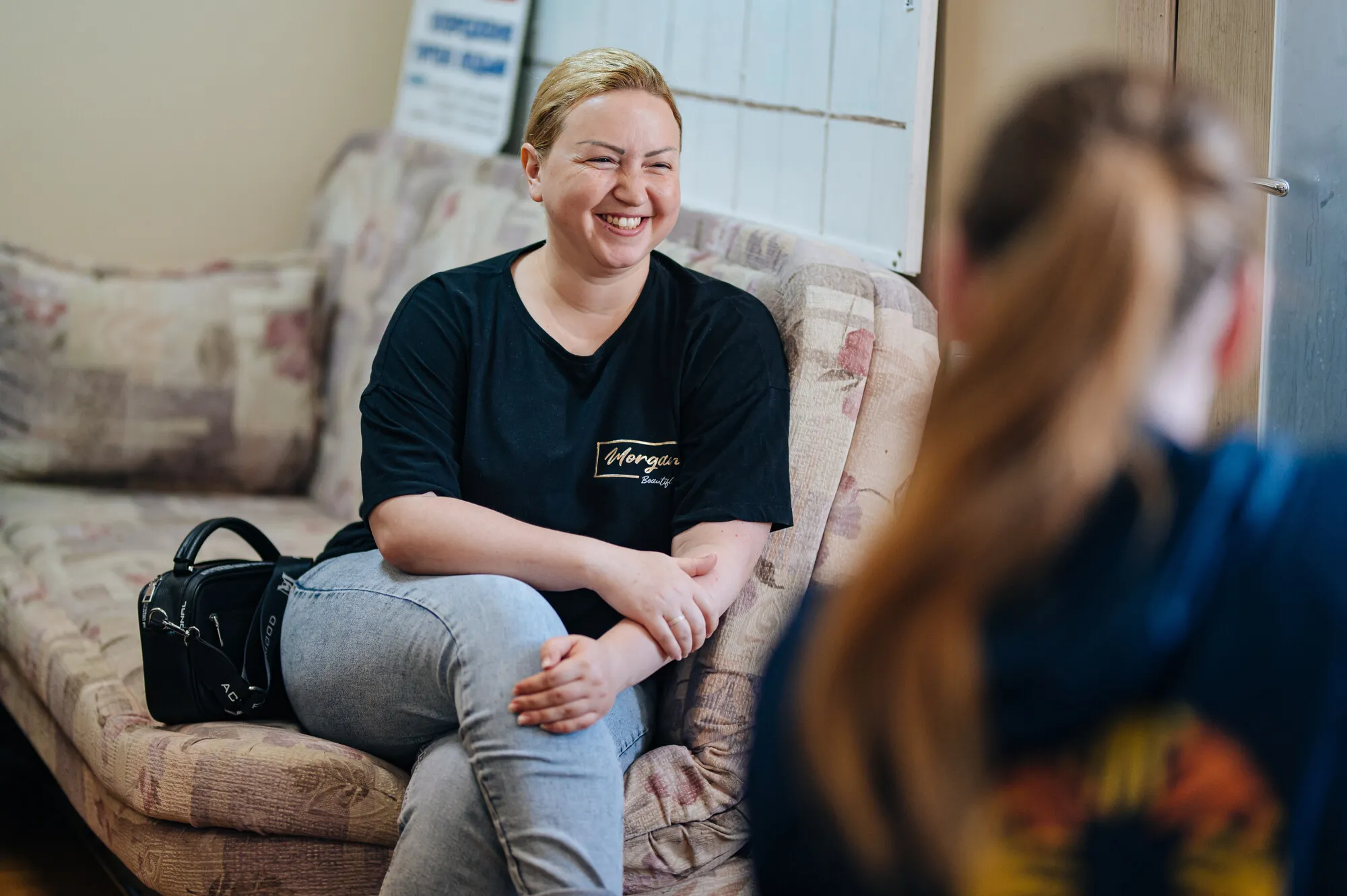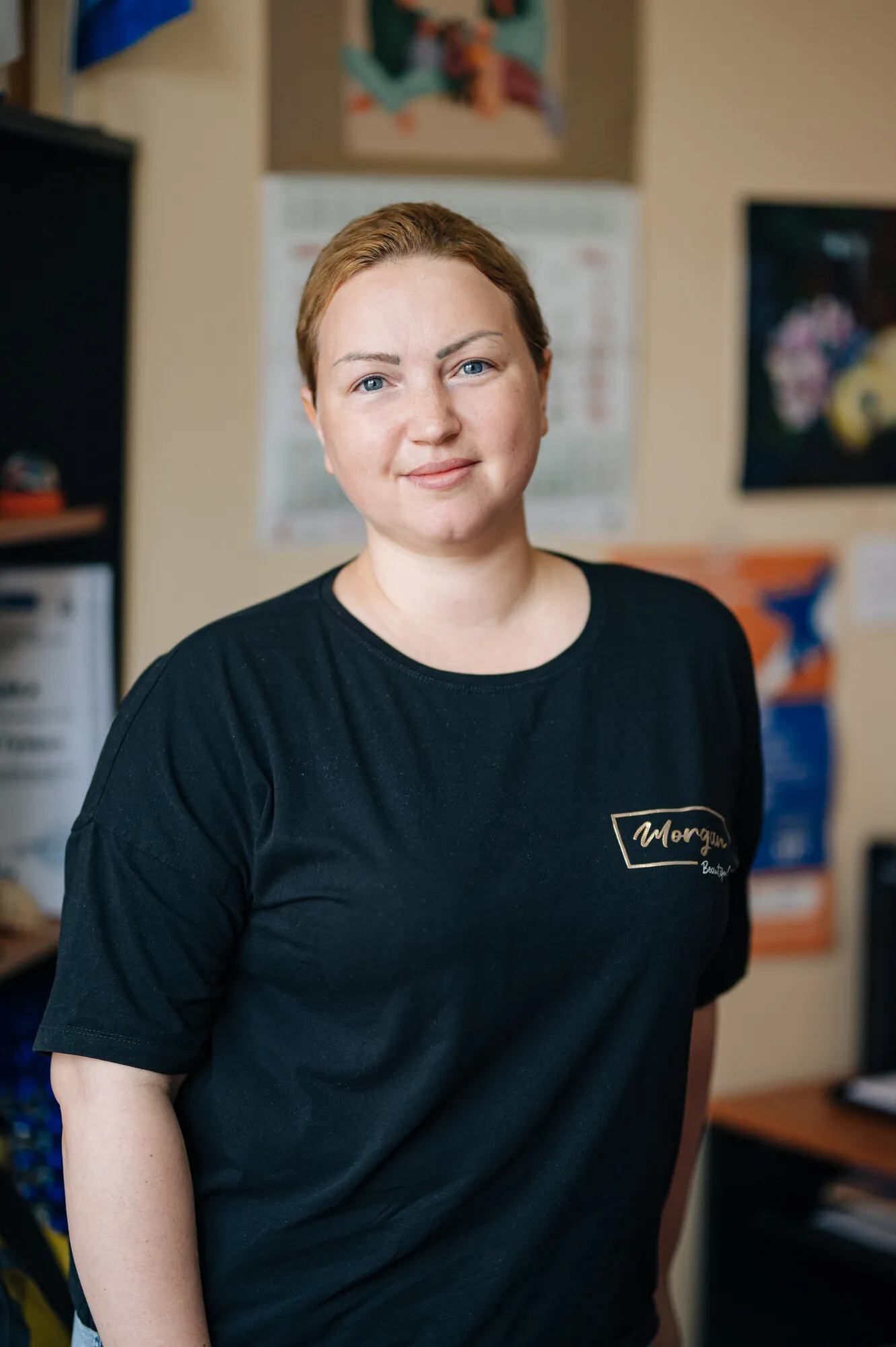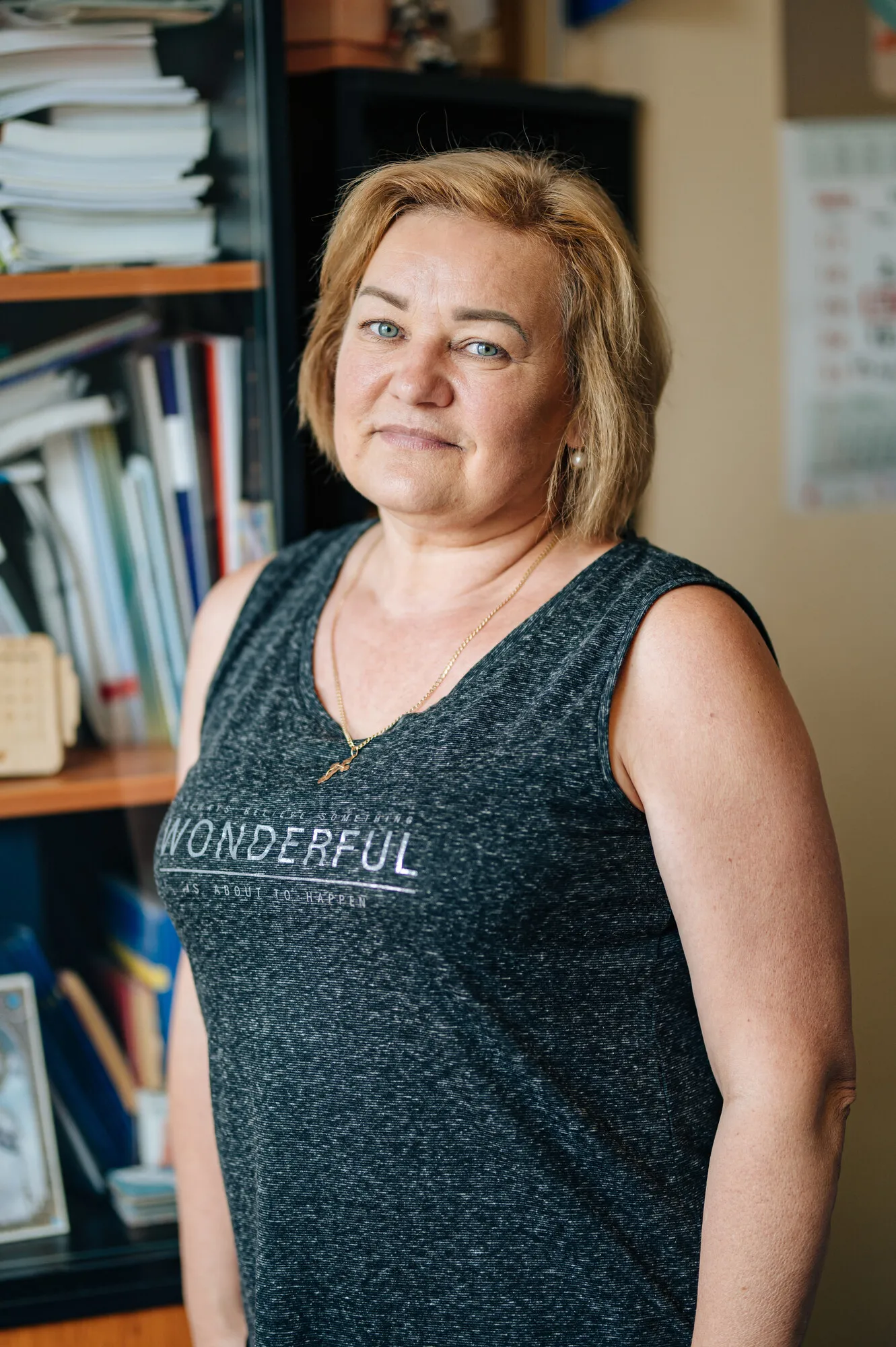After the war erupted in Ukraine last spring, Tetyana and her 12-year-old daughter slept underground for over two months, hoping they would not be forced to leave their home.
“It was cold in the basement. The electricity was turned off sometimes,” Tetyana, 33, says. “And we never knew when or if it would be turned back on.”
The family was in the Luhansk area of Eastern Ukraine, where the active fighting was some of the heaviest, and on May 8, they finally fled on what they said was the last bus out of the region.
“When there was only one shop left, we knew it was time to leave.”
They arrived in Rivne, a city in Western Ukraine.
Tetyana is calm now as she describes her new life there. But that was not always the case.
“I came to Rivne totally broken,” she says. “The first time there were air sirens in Rivne it was like something turned inside of me.”
Tamara, a psychologist working with a local organization supported by CARE, has been helping Tetyana talk through her experiences.
“With the psychologist I talked about what my primary fear was,” Tetyana says, “I had some practical exercises to control my negative thoughts, to stop and to turn it to the positive. Now I can deal with it better. I can talk about it. The sirens do not scare me as much.”





